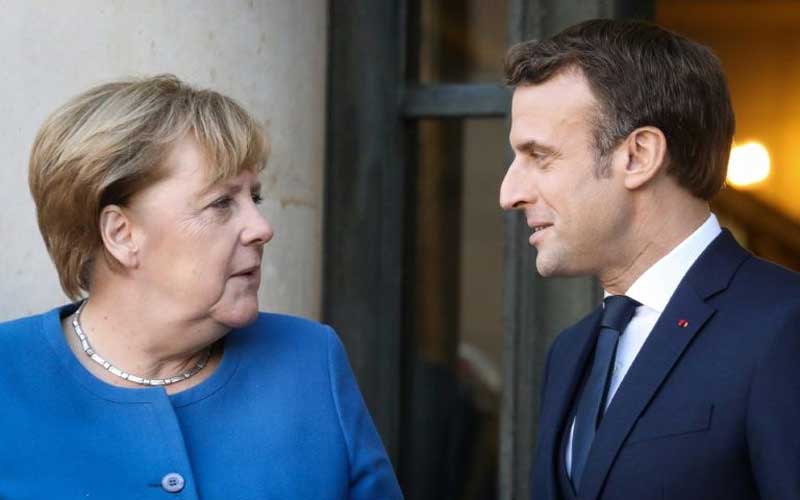×
The Standard e-Paper
Fearless, Trusted News

German Chancellor Angela Merkel and France's Emmanuel Macron will meet on Monday with some weighty issue at stake
Chancellor Angela Merkel hosts French President Emmanuel Macron for talks on Monday, days before Germany takes on the rotating presidency of the European Union with the economy in the throes of the most severe storm since World War II.